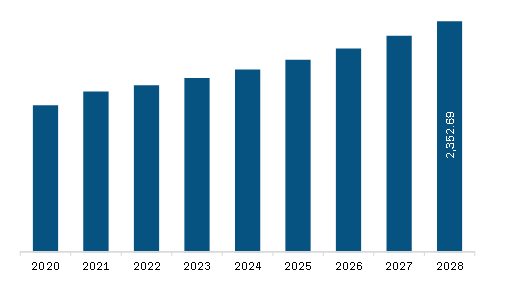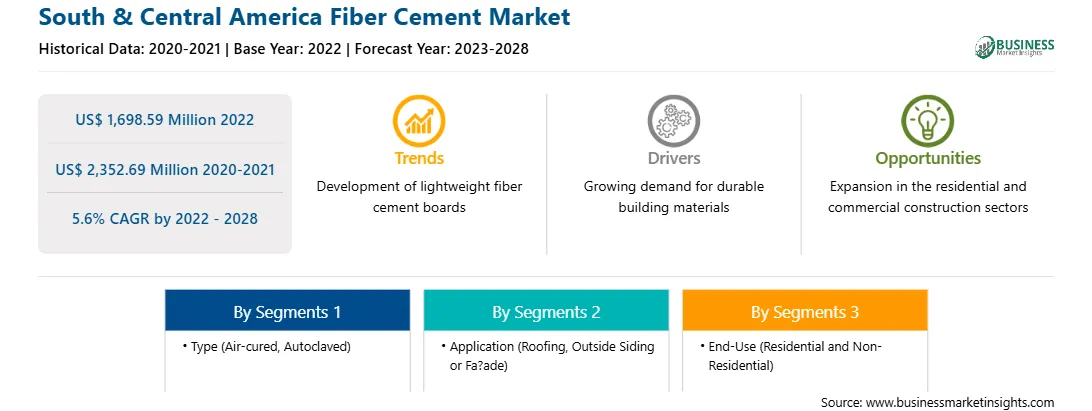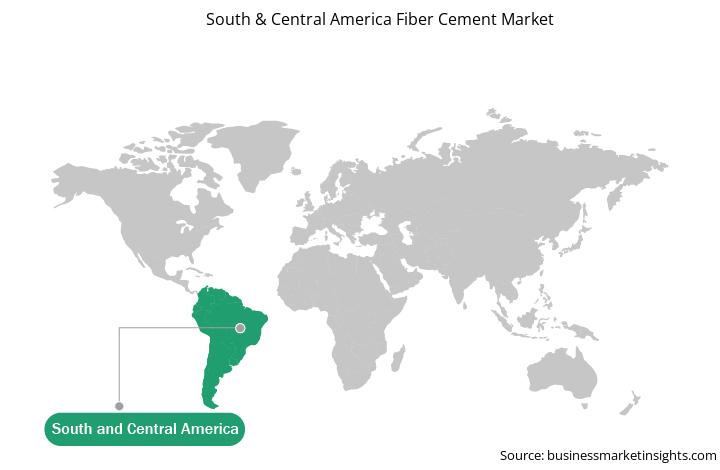Durability is one of the most desirable qualities of fiber cement. Fiber cement siding, boards, and panels typically outlast vinyl siding and other alternative products in lifespan. Within 10 to 15 years, vinyl siding can show signs of aging, whereas fiber cement siding can last up to 30 to 50 years or more. Further, in cement production, carbon dioxide is a by-product. However, manufacturing vinyl siding containing polyvinyl chloride (PVC) produces more carbon dioxide than cement production. Moreover, vinyl siding off-gases throughout its lifetime as it occupies a space landfill. Hence, fiber cement siding is a greener alternative to vinyl siding.
Fiber cement products do not require frequent repainting as it holds paint well. Also, they do not dent unlike steel siding. Fiber cement products stand stronger in moisture and leaks than gypsum boards. These products possess excellent moisture-absorbing and drying properties, making them resistant to weather changes.
Fiber cement products are fireproof, insect resistant, and perform well in natural disasters. The products have good sound insulation properties suitable for building good quality and long-lasting homes. Further, fiber cement products are available in various styles such as panels and shingles. They are also available in baked-on, prefinished colors that do not require painting. Owing to the growing awareness about these benefits of fiber cement products compared to other substitute products, they are increasingly used in flooring, furniture making, and wall cladding, which drives the South & Central America fiber cement market growth.
The fiber cement market in South and Central America is sub-segmented into Brazil, Argentina, and the Rest of South and Central America. The rising household income levels and the increasing number of people migrating from rural to urban areas are expected to drive the demand for the residential buildings in the country. The augmented focus on affordable housing by both the public and the private sector may propel development in the residential construction sector, thereby boosting the usage of fiber cement boards in construction applications. Furthermore, the region's key players can increase their market share by focusing on product development and innovations. It is considered that with the increasing presence of global and local market players, coupled with growing research and development activities, the fiber cement market is expected to find immense opportunities during the forecast period. The rise in investment in research & development activities and technological innovation related to the fiber cement board is also expected to bolster the growth of the market.
Strategic insights for the South & Central America Fiber Cement provides data-driven analysis of the industry landscape, including current trends, key players, and regional nuances. These insights offer actionable recommendations, enabling readers to differentiate themselves from competitors by identifying untapped segments or developing unique value propositions. Leveraging data analytics, these insights help industry players anticipate the market shifts, whether investors, manufacturers, or other stakeholders. A future-oriented perspective is essential, helping stakeholders anticipate market shifts and position themselves for long-term success in this dynamic region. Ultimately, effective strategic insights empower readers to make informed decisions that drive profitability and achieve their business objectives within the market. The geographic scope of the South & Central America Fiber Cement refers to the specific areas in which a business operates and competes. Understanding local distinctions, such as diverse consumer preferences (e.g., demand for specific plug types or battery backup durations), varying economic conditions, and regulatory environments, is crucial for tailoring strategies to specific markets. Businesses can expand their reach by identifying underserved areas or adapting their offerings to meet local demands. A clear market focus allows for more effective resource allocation, targeted marketing campaigns, and better positioning against local competitors, ultimately driving growth in those targeted areas.
South & Central America Fiber Cement Strategic Insights

South & Central America Fiber Cement Report Scope
Report Attribute
Details
Market size in 2022
US$ 1,698.59 Million
Market Size by 2028
US$ 2,352.69 Million
Global CAGR (2022 - 2028)
5.6%
Historical Data
2020-2021
Forecast period
2023-2028
Segments Covered
By Type
By Application
By End-Use
Regions and Countries Covered
South and Central America
Market leaders and key company profiles
South & Central America Fiber Cement Regional Insights

South & Central America Fiber Cement Market Segmentation
The South & Central America fiber cement market is segmented into type, application, end-use, and country.
Based on type, the South & Central America fiber cement market is segmented into air-cured and autoclaved. The autoclaved segment held a larger share of the South & Central America fiber cement market in 2022.
Based on application, the South & Central America fiber cement market is segmented into roofing, outside siding or façade, and others. The roofing segment held the largest share of the South & Central America fiber cement market in 2022.
Based on end-use, the South & Central America fiber cement market is segmented into residential and non-residential. The non-residential segment held a larger share of the South & Central America fiber cement market in 2022.
Based on country, the South & Central America fiber cement market is segmented into Brazil, Argentina, and the Rest of South & Central America. Brazil dominated the share of the South & Central America fiber cement market in 2022.
Compagnie de Saint Gobain SA; Etex NV; Plycem Construsistemas Costa Rica SA; and Swisspearl Group AG are the leading companies operating in the South & Central America fiber cement market.
The South & Central America Fiber Cement Market is valued at US$ 1,698.59 Million in 2022, it is projected to reach US$ 2,352.69 Million by 2028.
As per our report South & Central America Fiber Cement Market, the market size is valued at US$ 1,698.59 Million in 2022, projecting it to reach US$ 2,352.69 Million by 2028. This translates to a CAGR of approximately 5.6% during the forecast period.
The South & Central America Fiber Cement Market report typically cover these key segments-
The historic period, base year, and forecast period can vary slightly depending on the specific market research report. However, for the South & Central America Fiber Cement Market report:
The South & Central America Fiber Cement Market is populated by several key players, each contributing to its growth and innovation. Some of the major players include:
The South & Central America Fiber Cement Market report is valuable for diverse stakeholders, including:
Essentially, anyone involved in or considering involvement in the South & Central America Fiber Cement Market value chain can benefit from the information contained in a comprehensive market report.